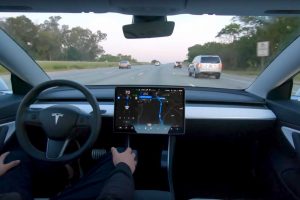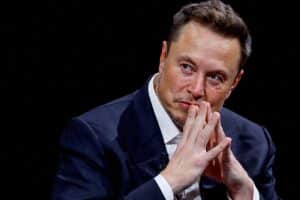- 🔋 Electric vehicles, once dismissed by automotive enthusiasts, have proven their performance capabilities, especially with models like the Tesla Roadster, Model S, and Model 3.
- 🏁 Despite earlier perceptions, EVs like the Tesla Model S Plaid and Model 3 Performance are now competitive in racing events, challenging the notion that they’re only suitable for straight-line races.
- 🚫 Unfortunately, some competitive driving events are banning electric vehicles from participating, as highlighted by Tesla driver Jon Bickford’s experience.
- 🏎️ Bickford, whose Model 3 was outfitted with upgrades from Unplugged Performance, was banned from events like the Goodguys 2024 Autocross and the Hot Rod Power Tour West Autocross, despite previous successes.
- 🤔 Bickford’s bans raise questions about the acceptance of electric vehicles in traditional racing circles and the fairness of competition regulations.
- 🌱 The bans underscore the ongoing debate about the role of electric vehicles in motorsports and their ability to compete against combustion-powered cars.
- 🛣️ Despite obstacles, the presence of electric cars in racing events highlights their growing significance and potential to outperform traditional vehicles.
In recent years, the automotive world has witnessed a remarkable shift in the perception and acceptance of electric vehicles (EVs). Once dismissed as lacking in performance and relegated to commuter vehicles, EVs have now emerged as formidable contenders in the realm of motorsports. Models like the Tesla Roadster, Model S, and Model 3 have shattered stereotypes and proven their prowess on the track.
The Rise of Electric Vehicles in Motorsports
- Performance Revolution: EVs have redefined performance expectations, challenging the notion that they are only suitable for straight-line races. Models like the Tesla Model S Plaid and Model 3 Performance have demonstrated exceptional speed, handling, and acceleration capabilities.
- Pioneering Successes: With victories in prestigious events and competitions, such as Pikes Peak and the Exhibition Class at events like Goodguys, EVs have showcased their potential to outperform traditional combustion-powered cars.
The Ban on Electric Vehicles: Unveiling the Controversy
- Jon Bickford’s Experience: Tesla driver Jon Bickford’s experience sheds light on the growing issue of EV bans in racing events. Despite previous successes and vehicle enhancements from Unplugged Performance, Bickford faced bans from events like the Goodguys 2024 Autocross and Hot Rod Power Tour West Autocross.
- Questionable Acceptance: Bickford’s bans raise questions about the acceptance of electric vehicles within traditional racing circles. The reasons behind such bans and their implications for the future of motorsports come under scrutiny.
Debating the Future of Electric Vehicles in Motorsports
- Fairness and Regulations: The fairness of competition regulations and the criteria for allowing EVs to participate in racing events become subjects of debate. Are bans justified, or do they reflect a reluctance to embrace change in the industry?
- Shifting Paradigms: The bans underscore an ongoing debate about the role of electric vehicles in motorsports. As EV technology continues to evolve and performance barriers are shattered, traditional perceptions are being challenged.
Embracing the Potential of Electric Vehicles
- Growing Significance: Despite facing obstacles, the presence of electric cars in racing events highlights their growing significance and potential to revolutionize the automotive industry.
- Advancing Innovation: Motorsports serve as a catalyst for innovation, pushing manufacturers to develop cutting-edge technologies that benefit both racing and road-going vehicles. Embracing EVs in racing can drive innovation and accelerate the transition to sustainable transportation.
In conclusion, the controversy surrounding the banning of electric vehicles from racing events underscores broader questions about acceptance, fairness, and the future of motorsports. As the automotive landscape continues to evolve, embracing the potential of electric vehicles is essential for driving innovation and sustainability in the industry.





